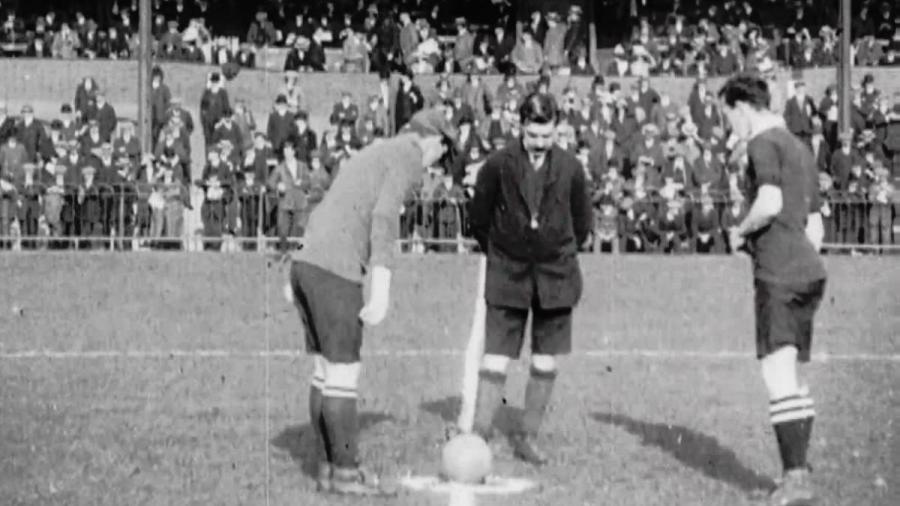There was yet more Fulham joy at the final game of a football-rich August.
Harry Wilson, who has missed most of the August fun through suspension, needed only five minutes at Craven Cottage to penetrate the Stoke defence on Saturday and send his left-foot shot curling beyond the reach of Josef Bursik. The keeper then made the first of several fine saves when Tosin put in a forceful header. The Potters had been expected to offer a tough challenge, and certainly our goalie was busier than usual, but overall the visitors struggled to contain a rampant Fulham.
To be sure of victory the Whites needed at least one more goal after the interval. Harry Wilson almost obliged but he had drifted offside. The Hammersmith End did not wait long; in the 53rd minute Bobby Cordova-Reid added a second after Bursik had parried a low shot from Mitrovic.
The Lambeth-born keeper, outstanding throughout, had to concede again 19 minutes later when Aleksandar Mitrovic, bubbling with energy after signing a new five-year contract, rewarded the crowd with a neat finish to another superb passing movement. Harry Wilson provided the chance at some personal risk.
Neeskens Kebano, replacing Wilson in the 87th minute, sped through the tiring Stoke rear-guard and was deprived of a goal by Bursik's desperate foul. The keeper proceeded to save Mitrovic's penalty kick, which certainly was not the worst effort from the spot in recent seasons. With a goal difference of 10 we could allow the keeper his moment of jubilation.
I haven't mentioned Fabio Carvalho, Tim Ream... Some journalists go through the process of allotting marks for each participant in a match. As far as I am concerned, this emphatic victory earned each Fulham player nine out of 10, though maybe Mitro loses half a point for his penalty failure.

The Cottage on the silver screen
Filmmakers have visited Craven Cottage since the first years of the 20th Century and I was always curious to know if any of the early material had survived.
Recently, my daughter alerted me to a gem on the BFI website: Fulham v Bury. It is a 2nd Division match that took place on Saturday the 21 September 1912. Imagine that, 16 years since the ground opened and just seven years after the building of the Cottage and the Stevenage Road Stand.
The film's single intertitle informs us that the teams had never met previously. This was because Bury had just been relegated from the top tier (I wonder how that feels). There were approximately 20,000 spectators present, including (I'm sure) my maternal grandparents.
Why didn't I ever ask them where they chose to stand? Being rather short they are likely to have picked a spot near the front, maybe on the Riverside Terrace, where there was more elbow room. My mother was then four-years-old – but it would not be too long before she was introduced to Fulham FC. She later recalled how startled she was by the alteration in her father once the match began.
"Week after week my eyes would grow round with amazement as this mild-mannered man transformed himself into a snarling werewolf barking 'Throw him off' or 'Kill him' in near frenzy."
Perhaps it is just as well that movies were silent in 1912. I was aware that the film would be extremely short (73 seconds) and that a single camera would have been used. Even so a lot was achieved as the cinematographer shifted his bulky camera and tripod around the pitch to give an overall impression of the occasion.
The first shot shows the teams emerging separately from the changing rooms at the Cottage. Fulham, out first, are wearing dark shirts to allow Bury to play in their normal white. According to the BFI, the convention had not yet been established for the away team to make the change.
We know the team is Fulham because the goalkeeper Arthur Reynolds is instantly recognisable. Despite the good picture quality, it's much harder to identify anyone else; Pat Collins and Willie Walker were noted for their good looks as well as their ability and Tim Coleman was widely known as a humourist. All the players must have been told to ignore the camera, otherwise Tim would have devised a little routine.
Bury are led out by their keeper, while Fulham's manager Phil Kelso shifts one of his directors out of the footballers' path and bizarrely another Fulham official digs a Bury player in the ribs almost causing him to stumble.
The cameraman had already used a quarter of his film at this point. After Bury win the toss, he heaves his camera towards the Hammersmith End, which Fulham have to defend. An attack comes to nothing, so he reverts to midfield, where we get a better view of one Fulham player. Finally, the camera moves to the Putney End, showing two attacks by the home side and the Bury goalkeeper fielding a back pass. A speculative Fulham header is the only worthwhile incident in the whole coverage of the match.
At halftime two brave charity collectors go round the pitch holding a small sheet into which spectators can throw their pennies. I say brave because those heavy copper coins, if misdirected, could cause a nasty injury. There is less hazard here as the Putney Enders are studiously looking in all directions except towards the sheet.
Fulham won 3-1 so our cameraman missed virtually all the action but could any of us do better with, say, 73 seconds of phone footage from a whole match (and no use of the delete function)?
Back in 1956 I tried to cover the Newcastle cup-tie with a primitive cinecamera and a one-minute cassette of film – which I used in the first quarter of an hour, thus missing all eight of the goals that ensued.
The views expressed in this blog are those of the author and unless specifically stated are not necessarily those of Hammersmith & Fulham Council.
Want to read more news stories like this? Subscribe to our weekly e-news bulletin.

